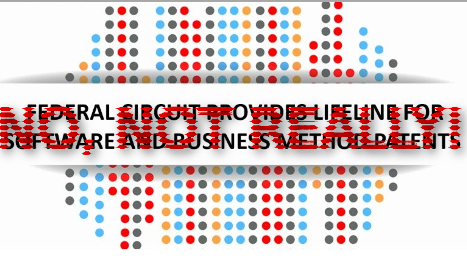

LAST week in Patent Docs, a site of patent maximalists, Michael Hinrichsen, Anthony D. Sabatelli, and Jonathan Schuchardt (from some law firm) were trying to 'pull a Berkheimer' (and Aatrix). It's incredible that they're still trying to use these tricks about a third of a year down the line. Berkheimer and Aatrix have not changed anything profoundly; they're just being mentioned a lot by law firms in articles. They keep name-dropping Berkheimer and Aatrix, alluding to some vague need to assess underlying facts (as if courts didn't already assess facts). The new USPTO Director played along for a while, but he has since then taken a low-profile approach (like António Campinos at the EPO) and we assume that any changes associated with Berkheimer and Aatrix are 'fossilised'. Many law firms submitted comments, but nothing has actually changed.
Buried amidst the flurry of recent Federal Circuit subject matter eligibility decisions is a question that could significantly change how Section 101 is applied in patent litigation. Specifically, the issue is whether performing Step 2 of the Mayo/Alice test can require a factual inquiry. If upheld, this interpretation of Alice could make patent litigation much more complicated and expensive. In fact, Section 101 inquiries could become convoluted mini-trials in their own right -- similar to how Markman hearings are performed today.
[...]
Troubling questions continue to emanate from the factual vs legal question debate. Will other panels support this view of Step 2 of Alice? To date, all supporting decisions have been penned by Judge Moore. Additionally, HP has filed a petition for an en banc review. If upheld, it is unclear what level of evidence would be required for a court to conclude that a factual inquiry is necessary. Based on Berkheimer, it appears that if a specification describes a claimed feature as novel and that feature is eligible for consideration as an inventive concept, this may suffice to establish a genuine issue of material fact. It is unclear how such a factual inquiry would proceed, however, or what kind of evidence and how much of it would be required to establish that a claimed element is 'inventive.' Regardless of how these inquiries are eventually performed, if upheld, treating Step 2 of Alice as a legal question with factual underpinnings will undoubtedly complicate Section 101 inquiries.
"Their logic is fairly simple: more patents = good, fewer patents = bad."It has barely changed a thing! It has been a long time since then, nearly half a year!
Patent Docs being Patent Docs (having also just advertised for patent maximalists [1, 2, 3, 4]), we don't suppose that it will even pen a piece about why Section 101 is good and software patents are bad. The site is run by patent law firms, whose sole goal is increasing their profits. The same goes for Watchtroll, which keeps moaning about SCOTUS improving the quality of US patents, even as recently as 4 days ago.
Their logic is fairly simple: more patents = good, fewer patents = bad.
"Why is it that patent lawyers are allowed to dominate not only media coverage about patents but also blogs, including ones with a name like IP Watch (suggestive of opposition to the 'IP' maximalists)?"That's it! Financial logic. For patent lawyers anyway...
We were rather disappointed to see that on the very same day IP Watch was again acting like platform of the patent microcosm (second time in a week), having published this post about Zeroclick, initially covered here back in early June.
Why is it that patent lawyers are allowed to dominate not only media coverage about patents but also blogs, including ones with a name like IP Watch (suggestive of opposition to the 'IP' maximalists)? The public needs to hear more from technical people, not legal professionals, whose skills involve name-dropping or 'pulling a Berkheimer', as we dubbed/called it back in May. The Patent Trial and Appeal Board (PTAB) almost never mentions Berkheimer in relation to inter partes reviews (IPRs). Neither does the Federal Circuit. ⬆